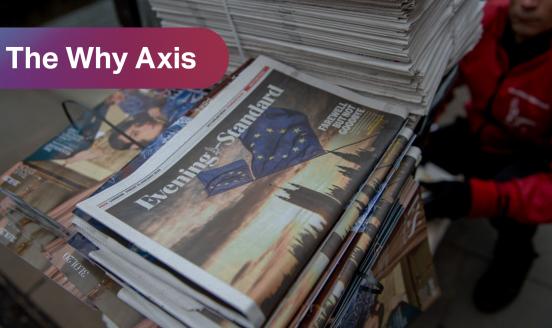Should emerging multinationals be kept out?
Nicolas Véron draws lessons from cases such as CNOOC and Unocal, Dubai Ports World and P&O, or Vneshtorgbank and EADS, to identify in which cases government actions to prevent takeovers can be considered wise, and why these cases are generally the sign of dysfunctional markets.
Recent edginess about a Russian state-owned bank purchasing 5% of EADS raises questions that go beyond the airspace industry. Are some owners unwelcome in Europe’s large listed companies?
Within Europe, despite lurid headlines, protectionism no longer works. Even the most contentious takeover attempts have either succeeded or given rise to compromise: think of Italy’s Edison (now controlled by EDF), Antonveneta and BNL banks, UniCredit’s inroads into Poland’s banking sector, Mittal’s purchase of Arcelor, and probably soon also some combination of Abertis with Italy’s Autostrade, and of E.ON with Spain’s Endesa. (Suez in France is still an undecided story.) In fact if not in the rhetoric, governments have no veto right to oppose to a determined European acquirer, and so much the better. The same is largely true at transatlantic level.
The mergers between Daimler and Chrysler, BP and Amoco, Vodafone and AirTouch, now Alcatel and Lucent, and perhaps Euronext and NYSE, all show that political considerations have not hindered combinations between EU and US players including in industries considered “strategic”. Even in the much-trumpeted Danone case, there is nothing to indicate that PepsiCo would not have been able to win the Paris-based food-maker, had it effectively made an offer.
By contrast, political vetoes appear to have more weight when the acquirer is non-Western. Wise or not, the US Congress has succeeded in making China’s CNOOC renounce Unocal, and Dubai Ports World sell the US assets it inherited from the purchase of P&O. In Europe too, the UK Government has opposed the purchase of Centrica by Russia’s Gazprom. But such cases are likely to become more frequent in the future. ‘Emerging multinationals’ are gaining strength under the combined effects of globalisation and of higher oil prices. At more than 200 billion euro by end-September, Gazprom is worth almost as much as Total and EDF combined, Saudi Basic Industries (Sabic) more than the addition of Bayer and BASF, and China Mobile more than the sum of France Telecom and Deutsche Telekom. These new giants are bound to increasingly seek external growth.
It would be absurd and dangerous to repel them systematically. Wherever competition is effective, government intervention against the market is unnecessary and can quickly become counterproductive. The Americal refusal of Cnooc acquiring Unocal, a company whose influence on the oil market was modest, has probably strengthened the Chinese government’s dangerous belief that the oil market is a loser’s game for those who do not control the oilfields, which may have encouraged them to reinforce their political alliance with Iran.
At first sight, there would probably be no reason to oppose, say, Sabic buying Rhodia, or Egypt’s Orascom buying BouygTel, or India’s Infosys buying CapGemini, or even Bank of China buying a French mid-sized bank such as CIC. Even if the acquirers did not manage these companies well, which is by no means sure, the market would let alternative offers emerge, which would provide any needed goods and services and the corresponding jobs.
The argument that unique technologies need protection is also an unconvincing one. Europe’s problem is not that its innovating firms are snapped up by outsiders; it is that they are too few, and do not grow enough. Among the world’s 500 largest listed companies (1), 63 are mainly high-tech activities (not counting life sciences and telecoms operators). Among these, only 8 are headquartered in Europe(2) versus 38 in the US; their cumulated market values are in a ratio of 1 to 6. To fill this gap, Europe may need to ensure a better functioning of its markets, reform its financial system to foster more growth, or rebuild its research and higher education infrastructure; but closing its economy to outsiders certainly won’t help.
However, the bet on an open economy should not be a blind one. If a company enjoys significant and wellentrenched market power, it would be dangerous to see it in the hands of players that could use this power for political purposes. The defence industry is a case in point. In the US, the Pentagon is the dominant customer, and suppliers are effectively competing for orders: the state can use its market power to oversee their commercial policies and control the risk of proliferation. By contrast, Europe’s defence markets are fragmented, and companies such as EADS have inherited the legacy of the former public procurement monopolies. In such a context, it may be prudent to keep an eye on their equity structure, even though such a control does not solve the broader competition issue.
The only sustainable answer lies in developing competitive, contestable, and well-regulated markets. In Europe, industries such as defence procurement, energy, banking or transport infrastructures generally require better regulation in order to enable fairer competition and general-interest objectives, e.g., sensitive data protection or security of supply. In the P&O case, the fears caused by the arrival of a Dubai-based operator were largely caused by the public authorities’ prior failure to convince the US public of their ability to enforce port security. Where the regulation’s efficiency is doubtful, it makes sense to submit to “robust scrutiny” (as the UK government said about Centrica) any moves by companies which themselves come from opaque political systems. But this kind of reasoned protectionism remains in essence an admission of failure. The interest of Europe’s governments is to support public trust in their open economies, not to close the door to new entrants because of their facial features.
(1) Source: FT Global 500 ranking by 30 September 2006: www.ft.com.
(2) Alcatel, BAE Systems, EADS, Ericsson, Nokia, Philips, SAP, and Siemens.
This comment was also published by La Tribune.



